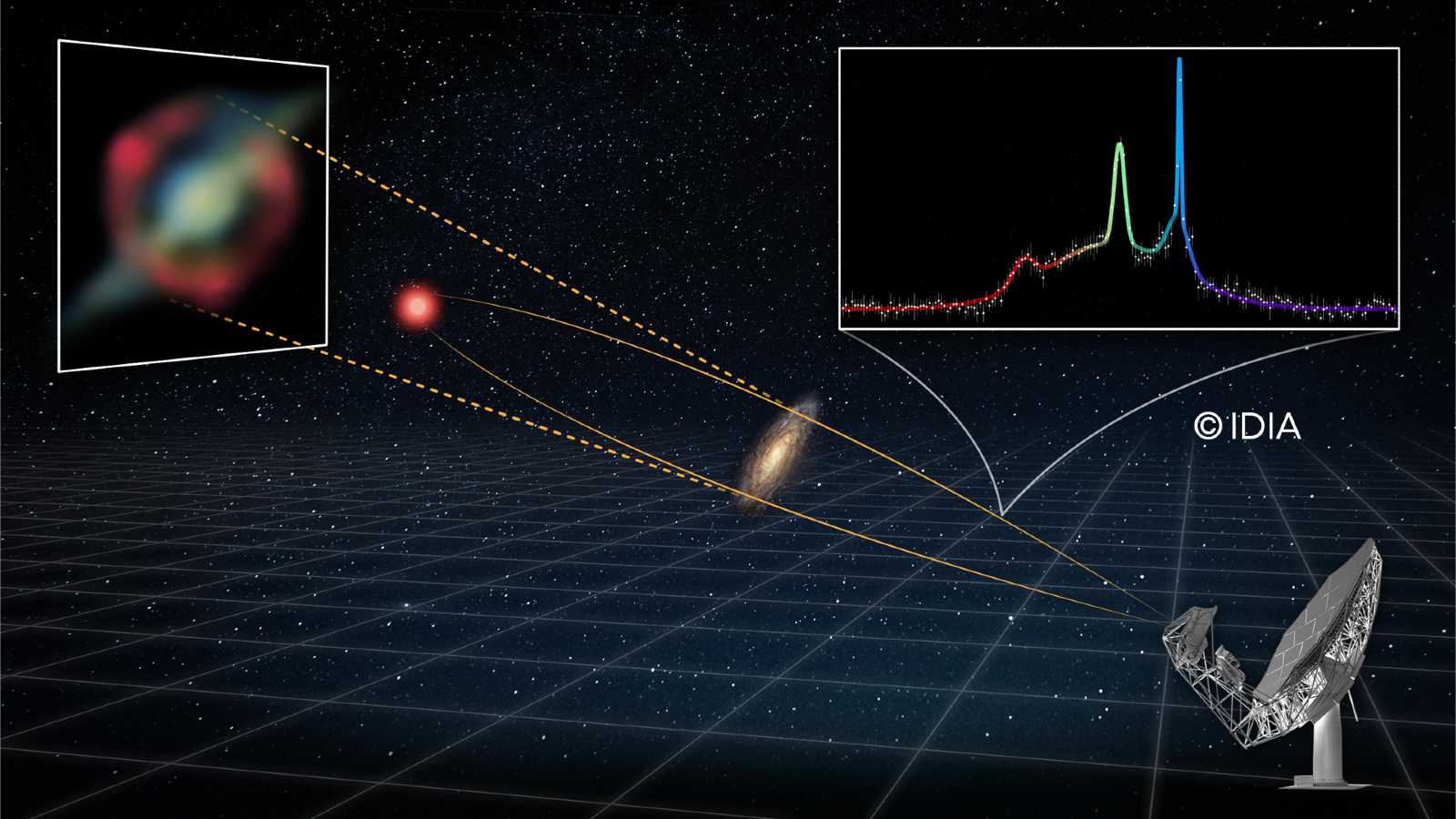Science News: Recent scientific discoveries and expert analysis
Read the latest science news and recent scientific discoveries on Live Science, where we've been reporting on groundbreaking advances for over 20 years. Our expert editors, writers and contributors are ready to guide you through today's most important breakthroughs in science with expert analysis, in-depth explainers and interesting articles, covering everything from space, technology, health, animals, planet Earth, and much more.

Explainers | Everything you need to know about the science news that matters.

Science Spotlight | Shining a light on new science transforming our world.
Latest news
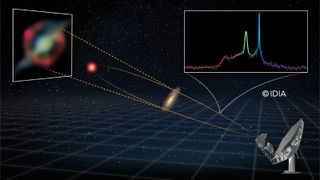
'Truly extraordinary': Mega-laser shooting at us from halfway across the universe is the brightest 'cosmic beacon' we've ever seen
By Harry Baker published
Astronomers have discovered the brightest and most distant "megamaser" to date. The cosmic energy beam is shooting toward Earth from 8 billion light-years away and was spotted thanks to a weird space-time trick first predicted by Einstein.
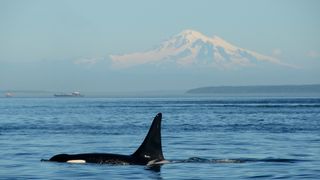
Chewed-up orca fins on Russian beach point to cannibalism, and scientists say it may explain why some pods are so tight-knit
By Chris Simms published
Detached orca fins scored with distinctive tooth marks suggest that killer whale cannibalism is happening — and it might explain some complex orca societies.
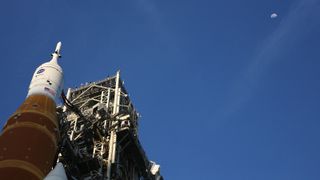
NASA fixes Artemis II rocket for April launch to take astronauts around moon
By Patrick Pester published
NASA's Artemis II is on track to shoot for the moon in April after engineers fixed the helium issue that grounded the mission's rocket last month.
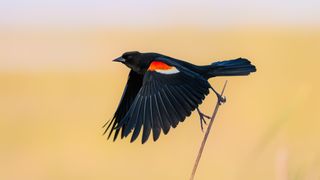
Birds are declining faster and faster in 3 US hotspots, new study finds
By Patrick Pester published
Researchers have revealed that North American birds are declining at an accelerating rate in three regional hotspots associated with intense agriculture.

Meet the world's smallest AI supercomputer — it packs 'doctorate-level intelligence', its makers say, and can fit into your pocket
By Alan Bradley published
The portable computing powerhouse is capable of running 120-billion-parameter LLMs, roughly three times larger than GPT-3, without needing to access the internet or the cloud.
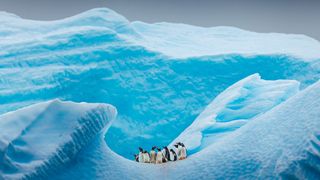
When was the last time Antarctica was ice-free?
By Victoria Atkinson published
Antarctica is covered by a miles-thick ice sheet, but was that always the case? And when was the coldest continent ice-free?
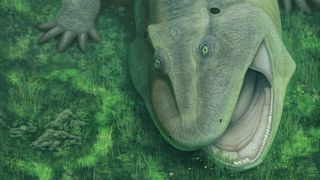
Prehistoric water-dwelling weirdo with sideways teeth and a twisted jaw was already a 'living fossil' 275 million years ago
By Aristos Georgiou published
Scientists have described Tanyka amnicola, a newly identified species of prehistoric creature that lived 275 million years ago and had a bizarre twisted jaw with sideways-facing teeth.
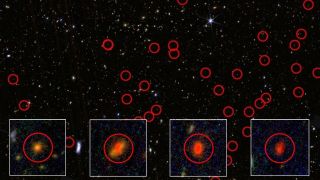
Mysterious 'dots' discovered by Webb telescope may be the first stars in the universe on the verge of collapse
By Shreejaya Karantha published
A new study suggests that "little red dots" spied by the James Webb Space Telescope could be the universe's short-lived first generation of gigantic stars, challenging an existing theory.

Stone Age woman was buried like a man, revealing flexible gender roles 7,000 years ago in Hungary
By Kristina Killgrove published
A study of 125 skeletons from two Neolithic cemeteries in Hungary has revealed that men and women had clear gender roles — but sometimes those roles were fluid.

'Collective hum' of black holes could settle the debate over new physics
By Andrey Feldman published
Ripples in the fabric of space-time called gravitational waves may be the key to solving the Hubble tension — one of the biggest nagging problems in physics.

Gold coin discovered by a metal detectorist in the UK may have been dropped by a Viking invader from the Great Heathen Army
By Tom Metcalfe published
A gold coin featuring the son of Charlemagne may have been a keepsake from a Viking invader who fought in the Great Heathen Army.
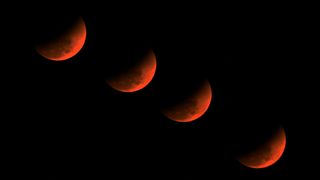
'Blood moon' total eclipse dazzles millions around the world (photos)
By Brandon Specktor, Ben Turner published
Here are the first images of the March 3 'blood moon' total lunar eclipse visible over North America, Australia, and eastern Asia.
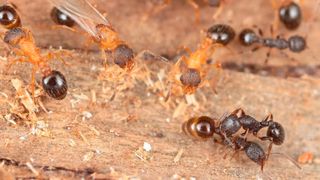
Every ant is a queen in this parasitic species — and they reproduce by cloning themselves and hijacking other ant colonies
By Chris Simms published
A rare Japanese ant is the only species known to lack female workers and males; all of its young develop into parasitic queens that try to take over other colonies.
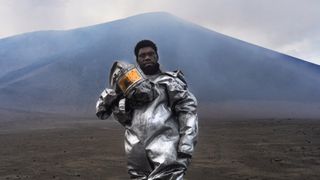
Vanuatu's 'barefoot volcanologist' stands at ash- and sulfur-spewing Mount Yasur in award-winning photograph
By Hannah Osborne published
Elle Leontiev's image of Philip, a self-taught volcanologist who has lived on Mount Yasur his whole life, has won the Portraiture category of the Open competition of the Sony World Photography Awards 2026.

Ancient Greek mystery cult priestesses may have chemically tweaked fungus to induce psychedelic hallucinations
By Tom Metcalfe published
Ancient followers of the Eleusinian Mysteries may have used a highly toxic fungus to create psychedelic hallucinations during their rituals, a new chemical analysis suggests.
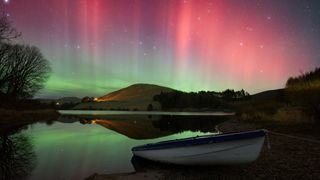
March could be the best month for the northern lights for nearly a decade
By Jamie Carter published
March 2026 could be the best month for the northern lights until the mid-2030s, as celestial mechanics and solar activity combine for potentially potent results.

Scientists made AI agents ruder — and they performed better at complex reasoning tasks
By Drew Turney published
A new project allowed AI chatbots to interrupt, stay silent or speak up the way humans do in conversation, and it made them smarter and more accurate.
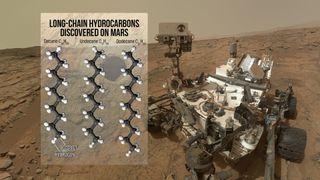
Giant string of organic molecules on Mars may be one of the best signs of life yet
By Ivan Farkas published
A new NASA analysis concludes that it is "reasonable to hypothesize" that living things could have formed the odd organic molecules discovered on Mars.
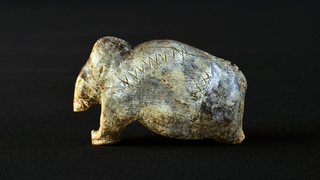
Paleolithic humans invented an 'early predecessor to writing' at least 40,000 years ago, carved signs suggest
By Kristina Killgrove published
A statistical analysis of a series of signs carved into artifacts from around 40,000 years ago suggests humans developed proto-writing in the Stone Age.
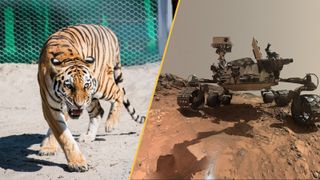
'Spiderwebs' spotted on Mars as NASA's moon program gets a major shakeup, tigers set to return to Kazakhstan, and why 'monogenic' diseases might not be so simple after all.
By Ben Turner published
Science news this week Feb. 28, 2026: Our weekly roundup of the latest science in the news, as well as a few fascinating articles to keep you entertained over the weekend.
Get the world’s most fascinating discoveries delivered straight to your inbox.
 Live Science Plus
Live Science Plus











